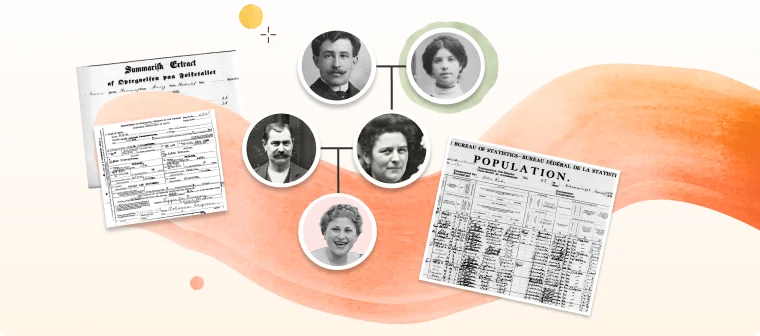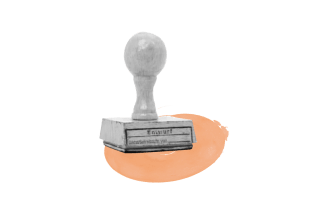Name Directory by Last Name: Last Names Starting with Na
Explore millions of names to discover rich genealogical details and uncover your family's history
Enter a name to research
Last name meanings and origins
- Nash
The surname Nash has its historical roots in England, deriving from the Old English word "næss," which means "headland" or "promontory." This suggests that the name was likely originally a topographical surname for someone who lived near a headland or a prominent geographical feature. The earliest recorded instances of the surname date back to the 13th century, with variations appearing in different regions.
- Naylor
The surname Naylor has its historical roots in England, deriving from the Old English word "naegl," meaning "nail." This occupational surname originally referred to someone who made or sold nails, a trade that was particularly important in medieval times when nails were essential for construction and carpentry. The earliest recorded instances of the surname date back to the 13th century, with various spellings appearing in historical documents, including "Nayler" and "Nailor." Over time, the surname became associated with the craft of blacksmithing and metalworking, reflecting the skills and trades of those who bore it.
- Nagel
The surname Nagel has its historical roots in Germany, where it is derived from the Middle High German word "nagel," meaning "nail." This occupational surname likely referred to someone who worked with nails, such as a blacksmith or a carpenter, indicating a trade associated with construction or craftsmanship. The earliest records of the surname date back to the medieval period, with its presence noted in various regions of Germany.
- Navarro
The surname Navarro has its historical roots in Spain, particularly in the region of Navarre, which is situated in the northern part of the country. The name is derived from the Basque word "nabar," meaning "the one from Navarre," and it first appeared in historical records during the Middle Ages.
- Nadeau
The surname Nadeau has its historical roots in France, particularly in the region of Normandy. It is derived from the Old French personal name "Nadeau," which is a diminutive form of "Nicolas," meaning "victory of the people." The surname first appeared in written records during the medieval period, with its bearers often associated with agricultural or artisan occupations, reflecting the agrarian society of the time.
- Napier
The surname Napier has its historical roots in Scotland, particularly associated with the Gaelic name "Napper," which is derived from the Old French "naperon," meaning "cloth" or "napkin." The name first appeared in the 13th century, with its earliest recorded instance linked to the family of Sir Robert Napier, who was granted lands in the Lothians. Over time, the Napier family became prominent in various social roles, including military and administrative positions, particularly during the medieval period.
- Nakamura
The surname Nakamura (中村) has its historical roots in Japan, where it is derived from the combination of two kanji characters: "naka" (中), meaning "middle" or "center," and "mura" (村), meaning "village." This suggests that the name originally referred to individuals who lived in or were associated with a central village or a village located in the middle of a region. The surname can be traced back to the Edo period (1603-1868), a time when surnames became more formalized in Japan.
- Nathan
The surname Nathan has historical roots that can be traced back to Hebrew origins, deriving from the Hebrew name "Natan," which means "to give." This name appears in biblical texts, notably associated with Nathan the Prophet, a key figure in the Old Testament who served as an advisor to King David. The surname began to emerge in Jewish communities during the Middle Ages, particularly in regions such as Spain and France, where Jewish families adopted surnames for identification purposes, often based on their given names or occupations.
- Nance
The surname Nance has its historical roots primarily in England and is believed to derive from the Old French word "nans," meaning "a place of water" or "a stream." This suggests that the name may have originally been a topographical surname for individuals living near a river or stream. The earliest recorded instances of the surname date back to the medieval period, with variations appearing in different regions.
- Nagle
The surname Nagle has its historical roots in Ireland, particularly associated with the Gaelic name "Ó Néill," which means "descendant of Néill." The name Néill itself is derived from the Old Irish word "niall," meaning "champion" or "cloud." The Nagle family is believed to have originated in County Cork, where they were part of the Gaelic nobility. Over time, the surname evolved, with variations appearing in different regions, often influenced by local dialects and languages.
- Napoleon
The surname "Napoleon" has its historical roots in the Italian name "Napoleone," which is derived from the Latin "Napoleonem," meaning "lion of the city." The name is most famously associated with Napoleon Bonaparte, the French military leader and emperor who rose to prominence in the late 18th and early 19th centuries. The surname first appeared in historical records in Italy, particularly in the region of Tuscany, where it was linked to noble families.
- Nason
The surname Nason has its historical roots primarily in England, with its earliest appearances dating back to the medieval period. The name is believed to be derived from the Old French personal name "Nason," which itself may have originated from the Latin "Nasonius," a diminutive form of "Naso," meaning "nose." This suggests that the surname could have originally been a nickname for someone with a prominent nose or a distinctive facial feature.
- Nation
The surname Nation has its historical roots in England, where it is believed to have originated in the medieval period. The name is derived from the Old French word "nacion," which means "nation" or "people," and it was likely used to denote someone from a particular region or community.
- Naughton
The surname Naughton has its roots in Ireland, deriving from the Gaelic name "Naughta," which is believed to mean "noble" or "gifted." The name first appeared in historical records in the 12th century, particularly in the province of Connacht, where it was associated with the Gaelic nobility. Over time, the Naughtons became prominent landowners and were often linked to various occupations, including farming and military service.
- Nader
The surname Nader has its roots in the Arabic language, where it is derived from the word "nadir," meaning "rare" or "precious." Historically, the surname is believed to have emerged in the Middle East, particularly among Arabic-speaking populations. It may have originally been used to denote individuals who were considered unique or exceptional in some way, possibly reflecting their skills, traits, or social status.
- Nava
The surname Nava has its historical roots primarily in the Iberian Peninsula, particularly in Spain, where it is believed to have originated from the Spanish word "nava," meaning "plain" or "meadow." This suggests that the name may have been used to describe individuals who lived near or worked on such geographical features. The surname can be traced back to the medieval period, with its earliest appearances linked to the regions of Castile and León.
- Nakajima
The surname Nakajima has its roots in Japan, where it is believed to have originated during the feudal period. The name is composed of two kanji characters: "naka" (中), meaning "middle" or "center," and "jima" (島), meaning "island." This suggests a geographical connection, possibly referring to families that lived on or near central islands or in the middle of a region.
- Namath
The surname Namath has its roots in Eastern European Jewish communities, particularly among Ashkenazi Jews. The name is believed to derive from the Yiddish word "namet," which means "to name" or "to call." Historically, surnames among Jewish populations often emerged in the 18th and 19th centuries as a means of identification, particularly in response to governmental mandates for fixed surnames.
- Nau
The surname Nau has its historical roots primarily in Europe, particularly in regions such as France and Germany. The name is believed to derive from the Old French word "nau," meaning "ship," which suggests a connection to maritime occupations or trade.
- Nall
The surname Nall has its historical roots primarily in England, where it is believed to have originated as a locational surname. It is derived from various places named Nall or similar variations, which are often associated with geographical features such as hills or knolls.
- Naumann
The surname Naumann has its historical roots in Germany, deriving from the Middle High German term "nūman," which translates to "new man" or "newcomer." This surname likely originated as a nickname for someone who was new to a particular area or community, possibly indicating a person who had recently settled in a town or village. The earliest records of the surname date back to the 13th century, particularly in regions such as Bavaria and Saxony.
- Nakagawa
The surname Nakagawa has its roots in Japan, where it is derived from the combination of the kanji characters "中" (naka), meaning "middle" or "center," and "川" (gawa), meaning "river." This suggests a geographical origin, likely referring to families that lived near a central river or a significant waterway. Historically, surnames in Japan began to be adopted during the Heian period (794-1185), but it was during the Edo period (1603-1868) that they became more standardized.
- Nakano
The surname Nakano has its roots in Japan, where it is believed to have originated from the geographical features of the region. The name "Nakano" can be translated to mean "middle field" or "central rice paddy," indicating a connection to agriculture, which has historically been a significant aspect of Japanese life.
- Naudin
The surname Naudin has its historical roots in France, where it is believed to have originated as a diminutive form of the name "Naud," which itself is derived from the Old French personal name "Nod," meaning "brave" or "bold." The surname first appeared in the medieval period, with records indicating its presence in various regions of France, particularly in the northern parts. Over time, individuals bearing the surname Naudin often engaged in occupations related to agriculture, craftsmanship, and trade, reflecting the agrarian and artisanal society of the time.
- Nail
The surname Nail has its historical roots primarily in England, where it is believed to have originated as a nickname or occupational surname. The name is derived from the Old English word "nægel," which means "nail," and it likely referred to someone who worked with nails, such as a blacksmith or a carpenter.
- Napolitano
The surname Napolitano has its roots in Italy, specifically deriving from the city of Naples (Napoli). Historically, the name is believed to have emerged in the medieval period, when surnames began to be adopted more widely.
- Nakayama
The surname Nakayama has its roots in Japan, where it is derived from the combination of the characters "naka" (中), meaning "middle" or "center," and "yama" (山), meaning "mountain." This suggests a geographical origin, likely referring to families who lived near or on a central mountain or elevated area. The surname can be traced back to various regions in Japan, particularly in the mountainous areas, where it may have been associated with agricultural or pastoral lifestyles.
- Nabors
The surname Nabors has its historical roots in the English language, with its earliest appearances traced back to the medieval period. The name is believed to be derived from the Old French word "nabor," which means "neighbor," indicating a social role or occupation related to community and proximity.
- Navratilova
The surname Navratilova has its roots in the Czech Republic, deriving from the word "navrat," which means "return" or "to return." Historically, surnames in this region often reflected geographical features, occupations, or personal characteristics. The Navratilova surname likely emerged in the late medieval period, when surnames became hereditary, and it may have been associated with individuals who had a notable connection to a place or a profession that involved returning, such as a traveler or a merchant.
- Navarre
The surname Navarre has its historical roots in the region of Navarre, which is located in northern Spain and southern France. The name is derived from the Basque word "nabar," meaning "the one from Navarre," and it first appeared in historical records during the medieval period, particularly in the context of the Kingdom of Navarre, which existed from the 9th century until its annexation by Castile in the 16th century.
- Nave
The surname Nave has its historical roots primarily in England, with origins that can be traced back to the Old French word "nave," meaning "ship," which was adopted into Middle English. This suggests that the name may have originally been a nickname for someone who worked in a maritime occupation or lived near a harbor.
- Navarrete
The surname Navarrete has its historical roots in Spain, particularly in the region of Navarre, which is located in the northern part of the country. The name is derived from the Basque word "Nafarroa," which refers to the ancient Kingdom of Navarre.
- Nairn
The surname Nairn has its historical roots in Scotland, particularly associated with the town of Nairn located in the Scottish Highlands. The name is believed to derive from the Gaelic "Nairne," which may refer to the river Nairn, a significant geographical feature in the area.
- Naud
The surname Naud has its historical roots primarily in France, where it is believed to have originated as a diminutive form of the name "Enaud," which itself is derived from the Germanic name "Ainard," meaning "eagle power." The earliest records of the surname date back to the medieval period, with instances found in various regions of France, particularly in the northern parts. Over time, the surname Naud became associated with various occupations, including those of artisans and tradespeople, reflecting the socio-economic structures of the time.
- Nadal
The surname Nadal has its historical roots in the Catalan region of Spain, particularly associated with the word "nadal," which means "Christmas" in Catalan. This surname likely originated as a nickname for someone born around the Christmas season or as a reference to a particular event or characteristic associated with the holiday.
- Napoli
The surname Napoli has its roots in Italy, specifically deriving from the city of Naples (Napoli in Italian), which has a rich historical and cultural significance. The name itself is derived from the Greek word "Neapolis," meaning "new city," reflecting the city's ancient origins as a Greek settlement.
- Nay
The surname Nay has historical roots that can be traced back to various regions, particularly in Europe. It is believed to have originated from the Old French word "nai," meaning "to deny" or "to refuse," which may have been used as a nickname for someone who was obstinate or unyielding.
- Natale
The surname Natale has its roots in Italy, deriving from the Latin word "natalis," which means "of birth" or "born." Historically, it is believed to have first appeared in the medieval period, particularly in regions such as Campania and Sicily, where the name may have been associated with the celebration of Christmas (Natale in Italian) or linked to individuals born during the holiday season. Over time, the surname became associated with various occupations, particularly in agrarian societies where families often took on names reflecting their roles or the characteristics of their land.
- Nauman
The surname Nauman has its historical roots in the Arabic and Hebrew languages, where it is derived from the word "na'aman," meaning "pleasant" or "delightful." The name is believed to have first appeared in the Middle East, particularly among Jewish communities, and has been associated with various occupations, including those of scholars and religious leaders. Over time, the surname has evolved, with individuals bearing it often linked to traits of kindness and amiability, reflecting the meaning of the name itself.
- Nast
The surname Nast has its historical roots primarily in Germany, where it is believed to have originated as a variant of the name "Nast," which may derive from the Middle High German word "naste," meaning "to be nasty" or "to be unpleasant." This surname likely first appeared in the medieval period, with records indicating its presence in various regions of Germany. Over time, individuals bearing the Nast surname may have been associated with specific occupations or social roles, possibly linked to trades or crafts that required a certain level of skill or resilience.
Start your family tree for free
Start by entering a few names and MyHeritage will do the rest, so you can make meaningful discoveries

Explore historical records

Explore 1,810,427,080 census and voter list records to get a detailed snapshot of your ancestors' lives. Discover names, ages, occupations, family relationships, residences, and much more.

Explore 4,647,704,406 birth, marriage, and death records. Uncover valuable details about major family milestones and find names, dates, places, occupations, and residences of your ancestors and relatives.

Search 266,544,192 military records and discover the stories of courage and resilience in your family history. Military records include enlistment dates, ranks, locations, and even physical descriptions.
Embark on a fascinating journey to discover your family history

Start by adding a few names. Myheritage's automatic matching technology will help you expand your family tree and delight you with new discoveries.

Reveal your ethnic origins and find relatives you never knew existed with our simple DNA kit.

Dive into MyHeritage's international collection of 36.7 billion historical records - start with a name of an ancestor and see what our collections can reveal about your family history.
About MyHeritage

MyHeritage is the leading global platform for family history. It enriches the lives of people worldwide by enabling them to uncover more about themselves and where they belong. With a suite of intuitive products, billions of historical records, an affordable at-home DNA test, and AI-powered photo tools, MyHeritage creates a meaningful discovery experience that is deeply rewarding. The MyHeritage platform is enjoyed by tens of millions of people around the world who treasure and celebrate their heritage.








